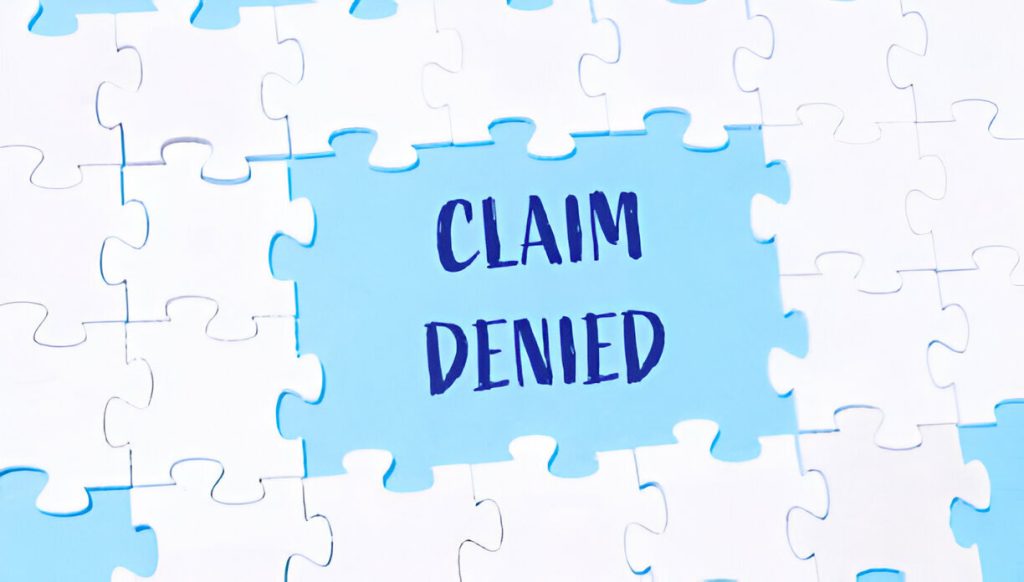Introduction
When You Might Want a Lawyer for a Home Insurance Claim
A home is more than shelter; it’s an investment, a sanctuary, a container for memories. When disaster hits — fire, flood, or theft — the financial and emotional impact can be devastating. Homeowners’ insurance is there to help ease the burden, but trying to figure out the insurance claim process can be anything but straightforward. That’s where legal backup can sway the balance of power, and policyholders aren’t at the mercy of insurance behemoths.
Typical Situations That Result In Disagreements With Insurer
Insurers can deny your claim for many reasons, including misrepresentations, policy exclusions, or a low damage assessment. Differences in repair estimates, opaque policy language, and a litany of acronyms make the process so confounding that, at times, it almost gets them gridlocked. These conflicts could delay recovery work and risk homeowners’ financial security.
The Risks When Claims Are Denied or Underpaid

A disallowed or severely reduced payout could lead to financial ruin. Without proper insurance, homeowners may be unable to fix storm-damaged homes, replace lost items, or find alternative living arrangements. The stakes are high enough to push numerous people into lawyers’ arms less by choice than by circumstance.
When It Comes to Home Insurance, Be Sure You Know What Your Policy Covers and What It Doesn’t
What Is a Home Insurance Claim?
A home insurance claim is when a policyholder formally asks their insurance company to pay for a loss or damage that is insured under the policy. It starts a process of documentation, evaluation, and—in an ideal world—reimbursement.
What Items Your Homeowner’s Insurance Will Cover
Homeowner’s insurance usually covers a dwelling structure, personal property, liability, and loss of use. However, there are exceptions—damage from earthquakes, floods, and mold often demands additional riders or policies.
Most Common Causes of Claims: Fire, Flood, Theft, and Other Types
Natural disasters, electrical fires, burst pipes, and break-ins are among the most common causes for claims. Each has potential legal and logistical obstacles, so it is essential to know ahead of time what your coverage entitles you to depending on the situation.
The Claim Process: From Crash To Cash!

When an event does occur, the homeowner has to alert the insurer, photograph all the damage, fill out forms, and often hold court for an adjuster. The insurance company then analyzes the claim and approves, rejects, or offers a settlement—all of which come with “strings attached.”
When Should You Hire an Attorney for Your Homeowners Insurance Claim?
Warning indicators: an attorney should be contacted right away
If it denies your claim, delays payment, or presents a lowball offer, you likely will need an attorney to represent your interests. More red flags can be found in unclear policy language, allegations of fraud, or fact-checking from adjusters.
Distinctions between Minor and Major Claims.
These minor disputes could be as easy as rectifying paperwork or little payout idiosyncrasies. They can also be substantial, with six-figure claims, structural integrity issues, or legal issues that linger for months, if not years.
Lawyers for Home Insurance Claims
What Your Insurance Company Doesn’t Want You to Know
Insurers have a whole toolkit of maneuvers to keep their payouts down. They rely on policyholders’ ignorance, emotional stress, and reluctance to seek legal help. The presence of an attorney disrupts this imbalance, and compliance with the rules of fair play is demanded.
How Insurance Firms Can Deny or Underpay Claims
Delay, Deny, Defend: Tactics Insurers Use
Some companies favor a “three D” strategy — delay, deny valid claims, and defend against lawsuits until people give up or settle for less.
Lowball Offers: When to Have Second Thoughts
Insurers will make an offer that sounds like a fair price, but is far beneath the cost to repair or replace something. As readily as some accept, it can also become a reimbursed expense.
Fine Print and Policy Exclusions: The Gray Areas
Yet tacitly buried deep in pages of legalese are exclusions that insurers use to deny claims — wear and tear, failure to maintain, or non-covered perils. These loopholes can be challenged, but require a legal mind.
Some insurance companies falsely accuse policyholders of material misrepresentation to deny coverage. Others act in bad faith, misinterpreting policies, miscommunicating deadlines, or holding biased investigations.
Forms of Claims Disputes With Home Insurance
Denied Claims: What Are Your Remedies?
You have the right to ask for an explanation and appeal the denial if your claim is denied, but you may also have to take legal action if necessary. Lawyers can find procedural mistakes and contradictions in denial letters.
When a Claim Is Underpaid: How and Why to Dispute the Payout
You don’t have to take the first offer. A dispute over an underpaid claim means collecting independent estimates, photographs, and expert testimony — tools a lawyer should be able to wield effectively.
Claims are Claims: When Waiting is the Problem
Delays can be more than annoying—they can also violate the state-mandated timeline. An attorney can push insurance companies to make quick settlements.
Coverage Disputes: Debating What Is Covered by Your Policy
Lawsuits frequently revolve around interpretations of unclear language. Attorneys focus on interpreting confusing policy language to prove the coverage is theirs.
When the Tables Are Turned Against Insurers: Fraud Claims
Being charged with insurance fraud is a big deal. Intentioned or not, these allegations can ruin reputations and torpedo credible claims. Having a lawyer is essential to protect your name.
How a Lawyer Can Be Helpful for Your Home Insurance Claim

Legal Skills to Use in Deciphering Regulations
Policy is written in a byzantine manner that can more often obfuscate than elucidate. Attorney Q: A lawyer’s trained eye can spot obligations, entitlements, and forgotten clauses.
Communicating with the Insurance Co. personally
When your attorney is on board, he or she can speak for you, protecting you from pushy adjusters and maneuvering questions.
Collecting and Admitting Evidence with MuscleFurther: They can prepare for inspections, gather expert opinions, and structure your evidence to build a compelling, evidence-based case.
Securing Higher Settlements
Lawyers know the equation for claims valuation. They can use command negotiation to settle at a fairer rate than the initial offers.
Suing The Insurance Company
When everything else has failed, litigation is the last remaining weapon. Lawyers can also draft complaints, go to court for you, and sometimes request additional damages beyond the amount claimed.
Selecting A Lawyer For Your Case
Characteristics of an Insurance Claim Lawyer
Look for someone with a focus, a track record of wins, good communication skills, and a no-nonsense approach to advocacy.
Questions to Ask at a Consultation
Inquire about prior case results, anticipated timetables, legal costs, and their approach if the insurer declines to settle.
Things You Should Run From
Watch for vague responses, high upfront fees, or lawyers who guarantee results. There are no shortcuts when it comes to ethical representation.
Local Versus National Law Firms: Which Is Better for You?
Local companies might push for customized service and knowledge of local laws. National firms can bring resources, brand, and scale. Pick for complexity, not for convenience.
Home insurance claims cost of hiring an attorney
How Contingency Fees are Applied in Insurance Matters
Our lawyers all operate on contingency, which means they get paid only if you win. This aligns your incentive and reduces upfront downside risk.
Hourly Rates or Flat Fees: What You Can Expect
Attorneys may be willing to work hourly or for a flat fee for smaller claims. Always ask for a comprehensive breakdown before you sign a retainer.
Can You Get Legal Fees if You Win?
In certain states, you may also seek reimbursement for legal fees if the court determines that the insurer acted in bad faith.
Pro Bono Choices and Legal Assistance
Legal aid clinics or nonprofit law firms may assist those who cannot afford to pay, without charge or at reduced rates.
Getting ready for your initial consultation with an attorney
What You Need to Bring With You
Collect a copy of your insurance policy, correspondence with the insurer, quotes, photos, receipts, and written denial.
How to Present Your Case Clearly and Professionally
Chronicle events in order. Illustrate your narrative quickly and credibly with dates, facts, and specifics.
Questions You Need to Be Prepared to Answer
Prepare for questions regarding the incident, your exchange with the insurance company, the degree of damage, and what you want out of it.
Suing Your Insurance Company
Stages of the Litigation Process
This all starts with a complaint, followed by discovery, motions, negotiations, and, if things don’t work out, a trial.
How Long a Lawsuit Might Take
Lawsuits can last months to years, depending on complexity and court calendars. Patience is key here, but persistence is also essential.
What Happens During Discovery
Both sides share information — documents, emails, and depositions. Discovery can make or break the case.
Trial vs. Out of Court
Trials are unpredictable and expensive. Many cases have also been resolved before then, but the threat of trial gets insurance companies to take negotiations seriously.
Alternatives to Litigation
An Easier Alternative is Mediation
Mediation is a process in which a neutral third party assists the negotiation process, allowing both sides to find a middle ground without a courtroom drama.
Arbitration: A Way to Resolve Disputes Without Going to Court
It takes less time than courtroom litigation, but the outcome is typically final—there are no appeals. Although less formal, it carries legal weight nonetheless.
When Alternative Dispute Resolution Is the Right Choice
ADR is great for moderate disputes or when the two parties want to move quickly and quietly.
Latest examples of case studies across the industry and real-life examples
These Homeowners Fought the Law and, in Rare Cases, Won
And a family in Florida obtained triple the initial offer after establishing bad faith. A homeowner in California discovered fraud in an adjuster’s report and was awarded extra damages above his claim.
What You Can Learn from Your Denied and Delayed Claims
Some common themes include documentation being king, persistence trumping all, and legal representation changing the game.
Mistakes Homeowners Make With Claims
Failing to Document Damage Adequately
Photographic proof, timestamps, and third-party judgment are essential. Without them, your case becomes weaker.
Accepting the First Offer Instantly
Thousands of dollars can be lost to impatience. And you should always see an attorney before you sign.
Communicating With Insurance Adjusters. Here are additional details that will help you prepare for the insurance exchange.
Adjusters can make statements that are intended to mitigate liability. Let your lawyer do the talking.
Why Waiting to Hire an Attorney Ruins the Holiday For You and Your Family
Statutes of limitations differ in every state, and some can lapse quickly. Inertia should not close your window of opportunity.
State Laws and the Effect on Your Case
Let’s look at Homeowners’ Insurance Laws by State
All states interpret coverage, liability, and bad faith differently. Local legal expertise is the key.
Statutes of Limitations You Need to Know
Individuals in some states have only one year to sue. Others offer up to five. Know your timeline.
Laws Protecting the Consumer That May Apply
Many states also provide other remedies to policyholders if an insurer is unfair. These laws can provide additional weight to your legal position.
What it Means When Insurance Carriers Act in “Bad Faith”
What Is Home Insurance Bad Faith
An absence of good faith is exemplified by withholding benefits, failing to cause them to be paid, or evading the spirit of the contract without an honest belief of a justifiable defence. It’s unethical and unlawful.
How Can You Establish an Insurer’s Bad Faith?
Document everything. Demonstrate evasions, misinformation, or inconsistencies in their reasoning.
Insurance Companies Found in Violation Must Pay Stiff Penalties
A judgment may include punitive damages, attorney’s fees, and public censure.
What to Expect During an Investigation Period
Role of Appraisers and Other Inspectors
Adjusters inspect for damage, but they work for the insurer. Independent experts do neutral evaluations.
What To Do About A Biased Assessment Of Damages
Get your appraisal done. Skewed reports, after all, can be undone under cross-examination by expert witnesses in court.
Reference Your Experts for Unbiased Assessment
Contractors, engineers, and appraisers can add credibility and value to your claim.
How specific types of damage are considered.
RELATED BLOGS Fire Waste Claims – Problems and Law
Proof of cause, extent of loss, and code upgrades make fire claims complex. You need documentation and expert analysis.
Illinois Insurance Coverage Basics – Part 1 of 2: Water, Water, and Flood Damage: How To Understand Policies And Coverage
Typical policies exclude floods. Lawyers can advocate for coverage of water intrusion or pinpoint gaps in coverage that insurers need to address.
Maintenance is a common defence in mould claims. A lawyer can demonstrate that covered perils cause the sudden onset of the condition.
Loss of Property – Theft or Vandalism: How to Prove Loss and Ownership
They won’t accept proof of anything. There are some key elements to these claims, including receipts, photos and a police report.
Optimizing Your Home Insurance Settlement
Tips From Legal Professionals
Stay organized, never exaggerate damages, involve experts early, and don’t accept “no” as the last word.
Documentation as an Important Factor
Photographs, receipts, and eyewitness statements are the ha’pennies of a well-argued claim.
The Influence of Timing on the Value of a Claim
Fast reporting is what due diligence looks like. Making quick responses is a sign of cooperation. Delay can cast doubt.
Public Adjusters vs. Insurance Attorneys
Differences Between the Two Professionals
Public adjusters assess claims and negotiate. Lawyers resolve disputes and, when necessary, escalate them to higher levels.
When to Use One or the Other — or Both
Consider a public adjuster when dealing with typical conflicts. For denial, fraud, or litigation, hire a lawyer. They can work in tandem.
How to Prevent Disputes Before They Begin
How to Read and Understand Your Policy
Ignorance isn’t an excuse. Understand your exclusions, limits, and responsibilities before submitting a claim.
Keeping a Home Inventory
An inventory of belongings (with their images and receipts) makes the claim validation process easy.
Doing the Necessary Maintenance and Repairs
Insurers also look closely at maintenance. Unaddressed leaks or overlooked structural concerns can cost thousands and strip a home of coverage.
Final Thoughts
Community Legal Empowerment of Homeowners
Knowing your rights is your greatest weapon. When you know, the playing field is leveled.
Why You Can Not Battle The Insurance Company Yourself
Insurers have legal teams. You should, too. Safeguard your investment with aggressive, experienced representation.
Acting Before It’s Too Late
Don’t wait for denial. Proactivity is protection. If you have any questions, seek advice before your claim becomes a catastrophe.
Navigating the Path Forward

The experience of filing a claim with your home insurance company usually works against you: it’s bureaucratic, adversarial, and absolutely opaque. It’s a system not designed for the average homeowner. The edge edges toward the insurer, accompanied by its squads of adjusters, legal advisers, and complex latticework of policy fine print. However, that advantage evaporates when homeowners have legal representation and a grasp of the claims process.
A good lawyer does not just enable you to get what you’re due — they act as a shield from being manipulated or silenced. In a culture that rewards silence and submission with underpayment, they amplify your claim.
How to Create a Culture of Accountability in Insurance
The fight for fair treatment isn’t just about getting justice for individual homeowners — it establishes precedent. When insurers are held legally accountable for bad-faith practices, it has ripple effects throughout the industry. Lawyers become the enforcers of responsibility, demanding that insurers live up to their word and that exploitative practices be overturned. This raises the bar across the board.
Keeping up-to-date and Getting Ready for the Future.
No one expects a catastrophe. But it can be the difference in the world when it happens, if you are ready for it — legally, financially, and emotionally. Keep a digital and hard copy of all your policies. Consider having your coverage periodically reviewed by a legal or insurance professional. Maintain scrupulous records of your property, improvements, and value over time. None of these measures will prevent harm, but they will significantly enhance your position regarding a claim.
A Final Word of Encouragement
Your home isn’t just bricks and mortar — it’s stability, legacy, and comfort. Don’t allow bureaucratic red tape or business practice to deny you the protection you have paid for. Whether looking at a denied claim or needing help maneuvering through a confusing system, legal assistance is not just practical — in many cases, it’s downright necessary.
In the world of insurance, justice does not occur passively. It is earned through tenacity, readiness, and strong advocacy. And it frequently starts with a single phone call to a lawyer who knows how to fight back.
Your Next Steps to Get Help

If you are at the stage where you’re thinking about getting an attorney involved, then you probably already know that your claim isn’t going as it should be. Maybe the insurer is casting about for more general excuses. Perhaps you’ve been given a settlement that barely touches part of what you’ve lost. Or perhaps you’ve been charged unfairly with policy violations. In any case, this is no time to be indecisive. It’s time for purposeful action.
First, collect every piece of paper related to your claim. This would include your original policy, your letter from the insurer, estimates of damage, photos, videos, and receipts of repairs or other incurred expenses—in short, anything that helps build a clear, chronological narrative about what happened and how the insurer handled it.
Once you do, speak with a lawyer who deals in insurance litigation. Seek out someone who offers a free initial consultation, can honestly evaluate your case, and won’t push you to sign up for something until you are clear on your choices. And you’re likely curious what the best attorney will do for you beyond getting you the most favorable court outcome.
Regaining Control in a World of Chaos
Home loss is personal. It interferes with your routine, threatens your safety, and spills over your entire family’s life. The whole point of insurance is to regain control amid that chaos, not make it worse. When insurance companies don’t measure up, these suits help correct the balance. “You deserve greater than empty apologies and hollow promises. Justice, restitution, clarity: All should be yours.
After The Settlement: Securing Your Future
There’s more to a successful resolution than closing an envelope with a check. It’s about ensuring your policy regains the full value it once had. “It’s about not letting your premium go through the roof unfairly. It’s about preserving your rights in the Future — if there is more damage, or if the insurer retaliates with threats to cancel the policy.
Lawyers can also assist in determining coverage and re-evaluating your policy after a claim. They can help you identify shortfalls in your existing coverage, suggest additional riders or endorsements, and suggest vetted public adjusters or independent adjusters if such a service is required in the Future.
There is Strength in Advocacy and Power in Preparedness
No homeowner should feel helpless against their own insurance company. With strong legal guidance, you are no longer a voice in the wilderness, crying over red tape. Experience, strategy, relentlessness — you are a claimant, and other claimants support you. A good lawyer is your most important tool in a forest of complicated contracts and well-considered denials.
In Closing
When your residence is breached, so is your serenity. Don’t let the compensation process add to your loss. Seek answers. Demand fairness. And keep in mind: your rights as a policyholder are not only optional (as is being widely and inaccurately communicated) — they’re enforceable. And with a lawyer by your side, you aren’t just standing up for a claim — you’re fighting for your home, your family’s Future, and the principle that promises made in good faith should be kept.
FAQ – Attorneys for Claims Against Homeowners Insurance COST
Do I need a lawyer to make a home insurance claim?
Not always. For small, undisputed claims, you could navigate the process yourself. But if your claim is denied, underpaid, delayed, or large in scale, hiring an attorney will protect your rights and significantly increase your chances of a successful outcome.
What does a home insurance claim attorney do?
A home insurance claims attorney will interpret your policy, communicate with the insurance company for you, collect evidence, negotiate a settlement, and, if necessary, file a lawsuit to ensure you get the money you’re owed.
How much does a lawyer cost for a home insurance claim?
Most insurance claim attorneys are paid on a contingency fee basis, which means they are paid only if you recover compensation. A typical fee agreement is between 25 percent and 40 percent of the settlement or judgment. Always clarify the fee arrangement in advance.
If My Car Insurance Company Refuses My Claim, May I Sue?
What is the time frame to appeal a denied claim?
The statute of limitations for disputing a claim or filing suit, which refers to the length of time you have to make a claim based on a specific set of facts, differs by state and, in some cases, by the type of dispute. It can be anywhere from 1 to 5 years. Do not delay — there are deadlines to file personal injury claims.
What should I take to my initial consultation with a home insurance attorney?
Take your insurance policy, any correspondence you’ve had with the insurer, photos of the damage, repair estimates, receipts, adjuster reports, and a timeline of events. This evidence will allow the attorney to evaluate how good your case is.
Yes. In the event that your insurer had no right to deny your claim or was acting in bad faith, you may file a lawsuit for damages, which can include the whole amount of the loss as well as other damages such as emotional distress, your legal bills, or even punitive damages.
What is the bad faith of an insurance company?
Bad faith may mean unfairly denying claims, inordinate delays, misleading you, offering too little on a settlement, refusing to investigate, or accusing you of fraud without proof. Such moves breach legal obligations and can be challenged in the courts.
What if I already accepted a low settlement? Can I still get help?
It depends. Accepting a check could mean waiving your rights to pursue additional compensation. But if you were misled, pressured, or the insurer acted in bad faith, an attorney may be able to help you recover additional damages.
Public adjuster vs. lawyer.
A public adjuster assesses property damage and negotiates with the insurance company but is not authorized to offer legal advice or file legal actions. A lawyer can take care of all the legalities and even go to court if the insurance company refuses to pay you fairly.
Will retaining an attorney delay my insurance claim?
In some situations, involving an attorney may actually speed up the process, especially if the insurer is dragging its heels. Insurance companies often respond more quickly and favorably when placed under legal pressure.
Is it better to hire a local lawyer than a national firm?
Local attorneys are generally more familiar with the state’s laws and the area’s court systems. National companies may have more resources to offer for complex or high-value matters. It depends on your situation.
Can I still afford to hire a lawyer if I am hurting for money because of the damage?
Yes. If that’s the route you go (and some lawyers specialize in just this sort of case), as many as will sign on to your cause will work on contingency, which means you won’t have to pay squat until you win. Additionally, low-income homeowners may be able to obtain legal assistance or pro bono assistance.
How can I tell if my insurer is mistreating me?
Red flags include vague communication, unexplained delays, repeatedly asking for documents that you have already provided, and offers that don’t match repair estimates. When something seems fishy, it’s smart to consult a lawyer.
What extra things can I sue for over and above the original claim?
In the event of bad faith, you may also obtain a damages award for other losses, like the costs you paid to hire a lawyer, awards to compensate you for emotional distress, and even punitive damages meant to penalize the insurance company for its unscrupulous actions.
Do my insurance rates increase if I hire a lawyer or file a lawsuit?
Nothing happens to your premiums just because you’ve hired a lawyer. However, insurance companies can also hike rates in response to any big claim, even if lawyers aren’t involved. It’s a business choice that does not concern your right to pursue just compensation.

